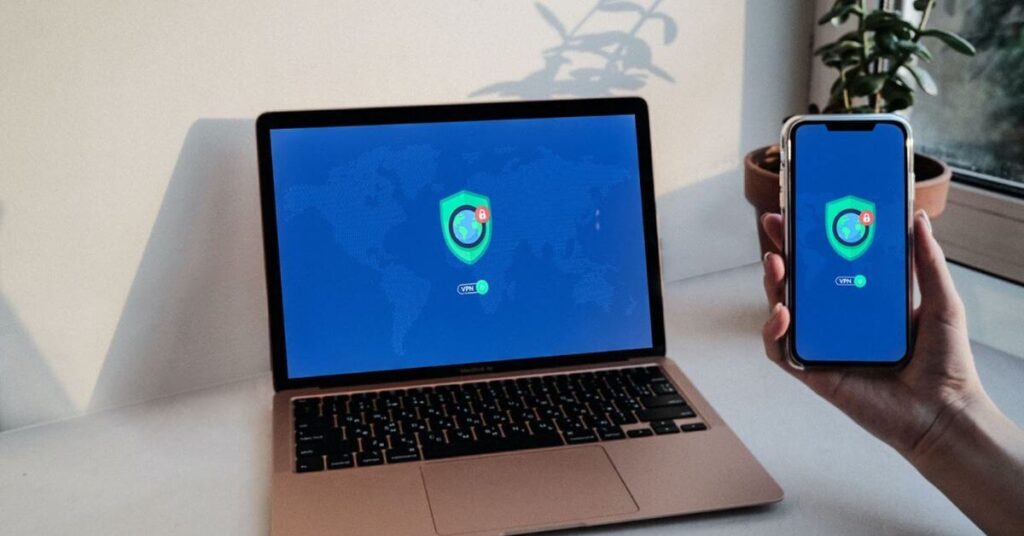Common VPN Mistakes You Should Avoid – The digital age has brought about an unprecedented surge of concerning data breaches. Countless individuals worldwide live in fear of their personal information being exposed online for all to see. Along with this, the demand for VPNs that can protect against data leaks has also grown.
However, many fail to recognize that VPNs do not offer complete protection unless used correctly. Numerous web users have suffered significant consequences over the years due to common mistakes. Sometimes VPN privacy provides a false sense of security but leaves them vulnerable to external threats.
Table of Contents
6 Common VPN Mistakes You Should Avoid
#1 Free, Unreliable VPN Service
Many people mistakenly believe that all VPN services are the same. Some new VPN users, especially those looking to save money, may choose a free service. The idea of getting a valuable service for free is appealing, but this often comes with a cost: compromised privacy.
Certain free VPN providers are known for collecting and selling user data, which defeats the purpose of using a VPN for anonymity. Additionally, most free VPN providers can only offer limited or slow bandwidth due to their limited budgets.
So, if you’re thinking about using a free VPN, it’s important to consider the trade-offs. If your privacy is important to you, it’s best to choose a reliable VPN service provider that offers strong security features and good performance, even if it requires payment.
#2 Error 800
Many newcomers to the world of VPNs struggle with the frustrating and confusing VPN error 800 code when trying to browse the web anonymously. This error simply means that your VPN is unable to establish a connection. It can occur when your VPN client fails to reach the server due to improper network connectivity or if the server itself is down.
Most people encounter errors like VPN error 800 when setting up their VPN for the first time. This problem may arise from your router’s incompatibility with the specific VPN you are attempting to use.
To resolve this issue, we recommend updating your firmware or exploring alternative, more contemporary options. You can also try another service option, such as a VPN extension. You can also install a VPN for your PC and all other platforms. If you use VeePN for Windows, you most likely will not encounter this error. At least the service has many distribution options and you can choose the best one.
#3 You Rely Too Much on VPN
VPNs can boost online privacy by masking your IP address and encrypting outgoing traffic. However, it’s crucial to recognize the limitations of a secure VPN and not overly rely on it. Neglecting this precaution can expose you to potential cybersecurity threats.
Your activity can still be tracked back to you through cookies, browser fingerprinting, and malware inadvertently downloaded while using a VPN. Therefore, it’s important to practice safe browsing, regularly clear cookies, and avoid phishing attempts.
Be sure to familiarize yourself with your VPN’s abilities and limitations, empowering you to make informed decisions about your browsing and adopt better cybersecurity habits.
#4 Use a VPN That Saves Logs
If you use a VPN, you probably want to keep your online activity private. However, it’s crucial to be aware that certain VPN servers log all your internet activity. That’s why it’s important to utilize a no-log VPN.
Fortunately, many VPN providers now offer no-log networks where your IP address or data is not collected during transmission. This not only maintains the privacy of your browsing activity but also prevents malicious actors from exploiting any stored data in case of a breach.
To ensure the authenticity of a VPN service claiming to be no-log, make sure it has undergone independent auditing. This verification by a third-party assessor confirms their no-log status.
#5 Incorrect Setting When Downloading a Torrent
People commonly use VPN services to access content that is restricted based on geographic location. When torrenting, it is crucial to connect to a VPN server located outside the United States. Doing so helps avoid potential issues with DMCA notices and copyright enforcement regulations. By selecting a server in a jurisdiction with more lenient torrenting laws, you can enjoy the privacy provided by a VPN without running into legal complications.
#6 Missing or Disabled Kill Switch
Some VPN providers employ a VPN kill switch, an advanced security feature that safeguards your IP address from exposure if your connection drops. Although even secure VPNs can disconnect due to unstable internet or software interference, this is more common with low-cost or free VPNs. The kill switch automatically detects this change and blocks internet access, protecting your privacy and security. Once you reconnect to the VPN server, the kill switch disables and restores your internet access. This prevents any negative repercussions and cybersecurity risks.
Conclusion
A VPN’s primary objective is to function as a secure gateway to a remote network. If the VPN lacks security, it can seriously jeopardize your privacy and its usefulness. Especially concerning are data leaks which expose you to online threats and attacks. Therefore, when considering VPN usage, it is crucial to conduct performance tests on various networks and understand the potential pitfalls that could compromise your browsing security.

Pradeep Sharma is a author the mind behind Techjustify, where I craft insightful blogs on technology, digital tools, gaming, AI, and beyond. With years of experience in digital marketing and a passion for tech innovation, I aim to simplify complex topics for readers worldwide.
My mission is to empower individuals with practical knowledge and up-to-date insights, helping them make informed decisions in the ever-evolving digital landscape.


